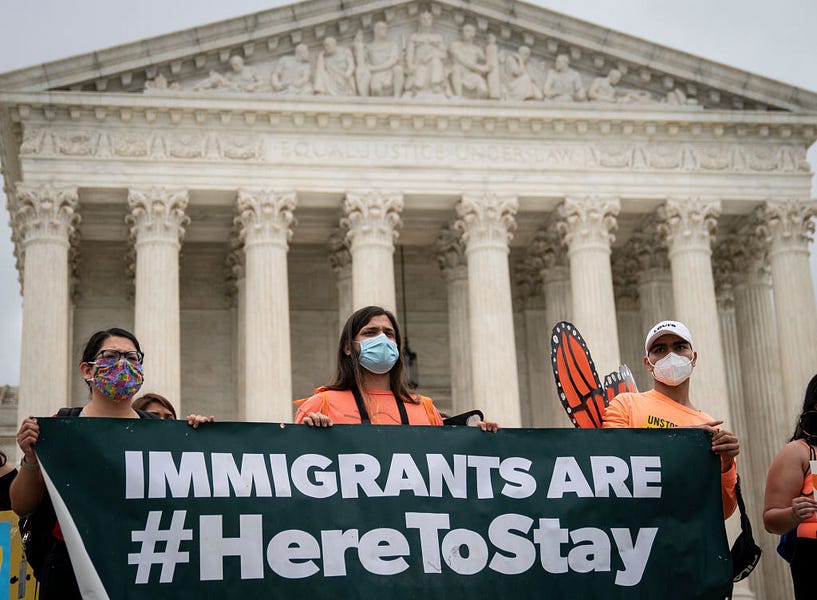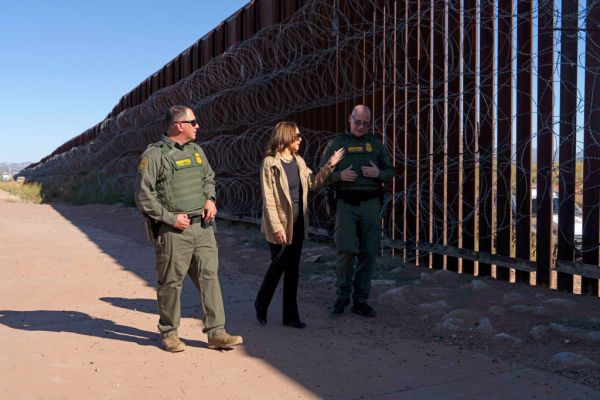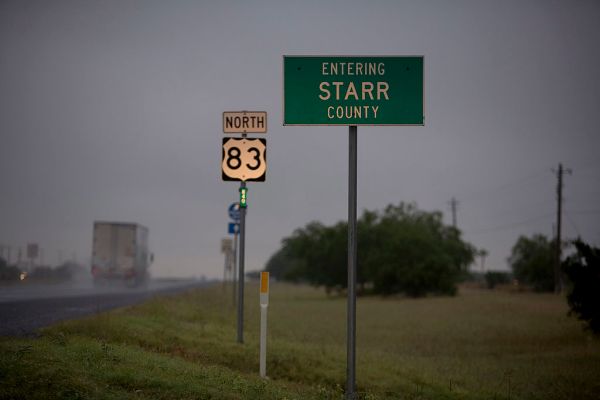The attitude of many Americans toward immigrants can be summed up in a simple question: “Why don’t they just wait their turn in line?”
That platitude generally described my own views toward immigration—until I became an immigration legal counselor, where my job was to understand and help immigrants navigate the complex set of “lines” that define the U.S. legal system. I learned quickly that the vast majority of undocumented immigrants were actually desperate to find their way into any line toward legal status but did not qualify. When given the chance—as hundreds of thousands were 10 years ago this week—they literally stood in line for hours.
On August 15, 2012, the U.S. Department of Homeland Security began accepting applications for Deferred Action for Childhood Arrivals (DACA). After Congress failed for more than a decade to pass a bill known as the Dream Act, which would have allowed undocumented immigrants brought to the U.S. as children the chance to apply for permanent legal status, the Obama administration offered these “Dreamers” temporary, renewable employment authorization.
As with similar workshops across the country in August 2012, the local office of World Relief—the faith-based, nonprofit immigration legal services provider where I work—had a line well out the door. Hundreds of Dreamers showed up, some before dawn, to literally wait their turn in line to apply for DACA.
One young man in that line was Alberto. I’d met Alberto a few years earlier, when I had conveyed to him the same bad news I shared regularly with undocumented immigrants after asking a series of questions: There was nothing I—or anyone—could do to help them, short of changes to federal immigration policy. He was only 10 when he’d entered the U.S. with his parents, but their tourist visas had long since expired, and Alberto was undocumented. He didn’t qualify for federal financial aid, he couldn’t work lawfully, and he had no path toward U.S. citizenship.
There are basically four ways to immigrate lawfully to the U.S.: Be among the lucky few selected for refugee resettlement after fleeing a credible fear of persecution (or make your own way to the U.S. to request asylum); win the long odds of the diversity lottery (but only for those from certain countries); be sponsored by an employer (but usually only for those classified as “highly skilled”); or be sponsored by a close family member who is a U.S. citizen or a lawful permanent resident (a green card holder). Each path has its own challenges and restrictions. Some of these “lines” literally require decades of waiting. And many immigrants simply do not qualify via any of these lines—even in this season when employers facing an inflation-fueling labor shortage are desperate to hire them.
Alberto’s family came originally because they thought they were in line. They had understood that Alberto’s uncle filed a petition for Alberto’s father (and his wife and minor children) in 1993. By 2001, when they entered on tourist visas, they understood that they would be allowed shortly after arrival to adjust their immigration status. But when they arrived, they found that there was no record of the petition they understood had been filed on their behalf.
Alberto, of course, had little understanding of this process, nor any say in the decision to stay in the United States after his family’s temporary visas expired. He learned English and integrated into his school, church, and community. Only later would he understand that he was undocumented, and at risk of deportation.
By what Alberto would credit to God’s grace, however, he ultimately managed to complete college on private scholarships. Shortly before leaving for graduate school in the summer of 2012, he heard about DACA. I told him to come to World Relief’s first DACA workshop.
That day was stressful: My colleagues and I, supported by a team of volunteers, did our best to meticulously prepare applications, but we were overwhelmed by the number seeking to apply. Alberto waited in line for hours—and by the late afternoon, we had to break the news to him and others that we’d need them to come back another day.
Eventually, a few days later, I helped Alberto complete his DACA application—and DACA changed his life. He no longer had to fear deportation from the country he considered his home. He no longer had to worry that, after investing years into higher education, he’d be unable to find a job using his seminary degree.
Eventually, Alberto found his way to a functional “line” to obtain permanent legal status: He married a U.S. citizen who could sponsor him for a green card. A few years later, after the requisite years as a lawful permanent resident, he proudly took his oath as a U.S. citizen. After earning his doctorate, Alberto is now a theology professor—and grateful for the opportunity to wait in line to be a lawfully present member of this country.
Others who waited in line for DACA are far less secure, however: Last summer, a federal judge ruled that the DACA program had been created illegally via Obama’s executive action, and it’s very likely that higher courts will strike down the program entirely in the coming years, withdrawing work authorization from approximately 600,000 individuals currently living and permitted to work lawfully—unless Congress finally passes some version of the Dream Act.
Immigrants are eager to wait their turn in line, just as thousands of Dreamers did a decade ago when DACA began. Give them a process, and they will do whatever is asked of them, including paying fees and fines as necessary. But only Congress can create those lines—and, tragically, it has deferred action on that responsibility time after time.
Matthew Soerens is the U.S. director of church mobilization and advocacy for World Relief, where he previously served as a Department of Justice-accredited legal counselor, and the coauthor of Welcoming the Stranger: Justice, Compassion and Truth in the Immigration Debate.








Please note that we at The Dispatch hold ourselves, our work, and our commenters to a higher standard than other places on the internet. We welcome comments that foster genuine debate or discussion—including comments critical of us or our work—but responses that include ad hominem attacks on fellow Dispatch members or are intended to stoke fear and anger may be moderated.
You are currently using a limited time guest pass and do not have access to commenting. Consider subscribing to join the conversation.
With your membership, you only have the ability to comment on The Morning Dispatch articles. Consider upgrading to join the conversation everywhere.